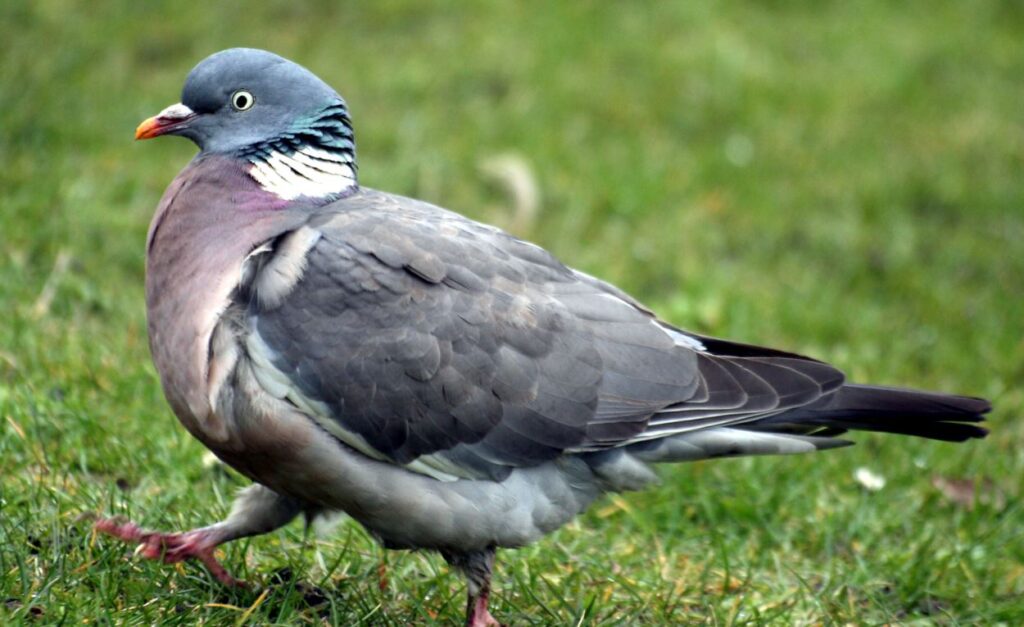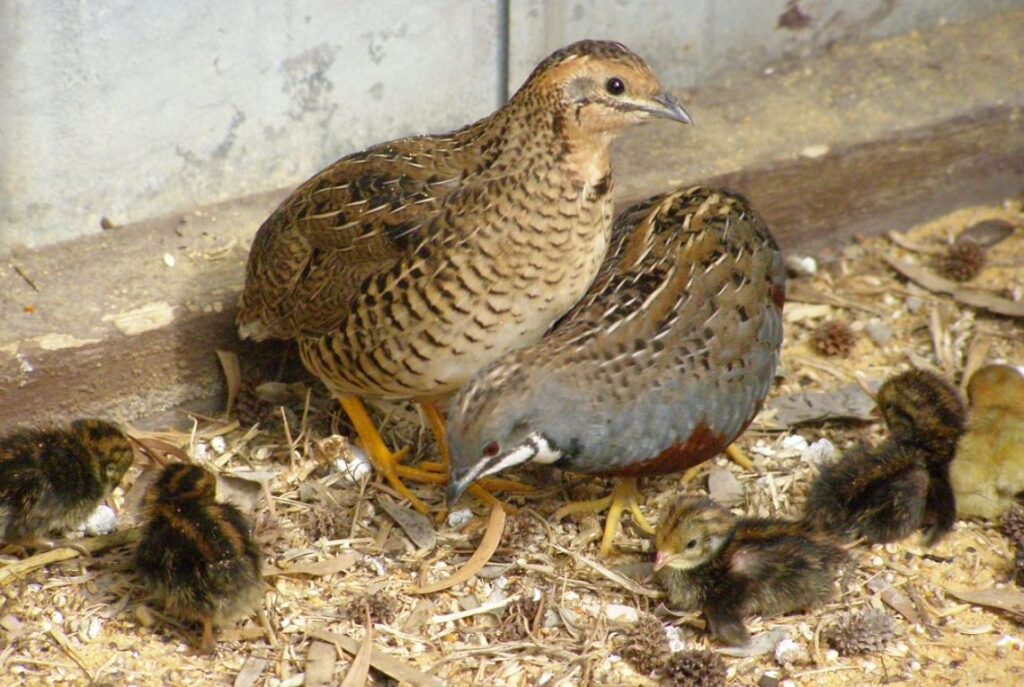Quail and doves are known as shy inhabitants of the forest found in tropical regions. These species usually stay in the American tropics. The more we know about the behavior of birds, the better we can understand their history, living behavior, and diet. So below, we are going to discuss some exciting facts about Dove and Quail. Are they related to each other? We will see some differences too, but there are few things you must know about both Dove and Quail before that.
Some Unheard Facts About Dove And Quail
Doves are almost in every part of the world that has hundreds of species in their existence. Thus, only a few doves are considered pets.
Doves are small and stocky birds that belong to a pigeon family known for their soft and low cooing. All Dove species have unique characteristics, but they share few traits based on their feeding behavior, appearance, and mating.
Quails differ in size, shape, and color, which varies from species to species. Scientists have identified around 43 species of these birds, so that means a lot of varieties. Most of them are cryptic colored, usually equating to brown-colored birds having black or dark brown patches/bands.
Some species of qual have excellent productive layers and lays 20 or above eggs. Some of the quail species are common where one of the most common quail species is found in North America – The bobwhite quail, famous as a game bird.
- Some species of these birds have crests of feathers that look like commas and emerge from the head top of the bird to hang in their face front.
- Most of the doves have stout bodies having short legs and beaks. They all own similar shapes through their plumage which changes from species to species. Some of the doves are uniform in their color, whereas others have different colors and patterns.
- The coloration of Dove also varies with brightness. This bird appears like its heart is bleeding. The chest front of Dove has a bright red color that looks exactly like blood.
- Dove does not look like it wears any hat but has a colored head, which seems like a crown on the top of their head.
Difference Between Dove Vs. Quail
Dove and Quail differ based on habitat, behavior, diet, and domestication. With this discussion, read out below differences –
Habitat
Quail live in varieties of habitats in different continents and regions. Habitat varies from various species though many of the species have overlapping ranges and preferences. The vast majority of species live on the ground, but they can fly whenever needed. Different ecosystems they inhabit comprising of savannas, grasslands, meadows, and many more. They love to live in areas with low shrubbery or tall grasses. Many of the species live in this farmland or agricultural fields.
Doves are living in different habitats, from deserts to tropical rainforests. For example, many species live in the Brazil rainforest, and others live on grasslands/meadows of North America. Many species live in urban areas such as gardens, farms, parks, and cities, and some are seen on atolls, islands, woodlands, deserts, swamps, mountains, etc.
Distribution
Quail lives virtually on every continent other than Antarctica, residing in Europe, Asia, Africa, North, Central, South America, Australia, and many more. Various species live in multiple regions. ‘New world’ quail live in America, whereas ‘old world’ quail resides in Asia, Europe, Australia, and Africa. Some species are widespread living across huge expenses, and other species live in small areas or islands.
Dove inhabits nearly every landmass on Earth apart from Antarctica, Northernmost reaches, and some areas of the Sahara desert. Some are spread through colossal land, and others are seen on a tiny space or group of islands. They are usually found in Eurasia, Africa, Australia, North, Central, South America, and their surrounding islands.
Behavior
The behavior of Quails varies in its different species. Some of the species are solitary for most of the year, whereas other species live in a small group. Most of these birds are found spending their time foraging on the ground to search for food. If they fear, they fly into trees or run for dense grasses and bushes to hide.
Doves are plentiful in their behavior, where few species are social living in flocks of different sizes. Social species feed together in groups, and other species are solitary found alone outside of the breeding season. Most of the doves are monogamous, whereas some pairs breed yearly, whereas others stay with their partners for a season around.

Reproduction
Every species is different when talked about reproductive strategies. Most of the species lay their large clutches of eggs, and some lay around 20 or above engs in one nest. They lay eggs at different times of the year based on living areas that usually revolve around the temperature or season. Eggs hatch faster and sometimes even less than three weeks. Chicks grow at different rates and reach their freedom at various ages based on their ages.
Doves build their nests from small twigs and sticks, placing them on the trees, grounds, ledges, or artificial structures. They lay around one or two legs and incubate them for two weeks as per their species.
Domestication
Humans have domesticated some of the Dove’s species, including diamond dove and ringneck dove, while humans domesticate Quail entirely for their eggs and meat though we keep some species as their pets. Most of the domestic Quail are descendants of a Japanese species where humans choose to breed for producing friendly birds laying more eggs.
Diet is different
Most of the species of the Dove are herbivores eating primarily plant matters. However, their diet varies based on the species and region they live in. some doves prefer to eat fruits and berries, whereas others eat grains and seeds. Those doves who feed on seeds and grains forage on the ground, while those who typically eat fruit forage in the bushes and trees. In addition, some species eat insects and other invertebrates such as spiders, moths, snails, flies, etc.
The diet of Quail is different for different species. However, most birds have the same feeding habits as some are herbivores as they prefer to eat plants, and some are omnivores eating plants and insects. Some of the various types of plant matter comprise berries, buds, grasses, seeds, and so on; they hunt for beetles, worms, ants, insects, and various small invertebrates.
These are some differences explained between Quail and Dove, but still, there are some things you might not have heard about both of these.
Questions And Answers
You have not heard some exciting unheard things, and it would surprise you to read the list in question and answer form.
Is the Quail a good pet?
Yes, Quails are considered good pets, but with the right circumstances only, whereas wild Quails are afraid of humans, so they are not suitable pets.
Is Dove a good pet?
Some doves are known as good pets. Domesticated species are usually friendly and make good companions, but you must not keep wild species as your pet. In many places, it is considered illegal to keep wild Dove as pets.
Is Quail a dove?
Their members are Quail doves, and all live in the Neotropics. Species of this genus have ranged from Central America, southern Mexico, and South America. Quail doves are known as ground-dwelling birds which are living, nesting, and feeding in dense forests.
What colors are the favorite of doves?
Doves prefer soft colors of their plumage. However, many doves have unique colors such as green, pink, yellow-gray, and orange, blending beautifully.
How long does a Dove live?
They live around 1.5 years, as is the average life span of a dove.
Do Quails fly away?
Quails can fly away, and they will not come back when they are allowed to escape.
What good are quails good?
Quails provide more meat for storage. People keep Quail for different reasons, such as pets, breeding for business, and training their hunting dogs. But the most common use for raising Quail is for their eggs and meats.
Do Quails make noise?
Quails do not make any nose anytime in comparison to ducks or roosters. Male quails make some noise sounding like the sound of the whistle, but females are almost quieter.
What happens to a dove when its mate dies?
Doves mate for a lifetime, and the bond they make is very strong extended beyond death also. Doves are known for watching their deceased mates and care for them returning to the place where their mates died.
Are Quails messy?
Yes, they are messy as they do not care about flicking their food and do not care how much water they spilled.
So, there are several notable things to know about doves and quails, like doves mate for a lifetime and like soft colors, whereas quails stay quiet and are considered good pets.

